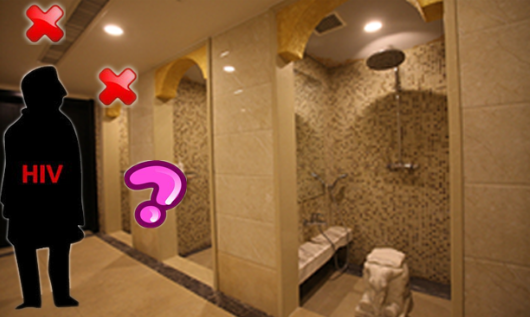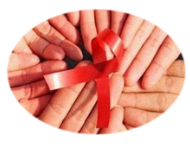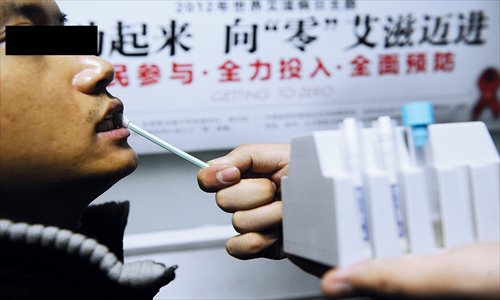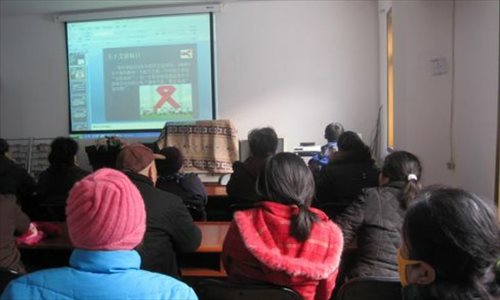HOME >>
Draft regulation prohibiting HIV carriers from public bathhouses under fire
Source:Globaltimes.cn Published: 2013-10-14 16:40:00
| Editor's Note |

A regulation on bathhouse management drafted by the Ministry of Commerce raised nationwide concern after proposing to forbid HIV carriers from entering public bath places under the new rule.
| Viewpoints |
 |
Wu Hao, director of the Beijing AIDS/STD Research Center: No recent study has ever documented an HIV infection through sharing a bath. The HIV virus is not easily transmitted under average temperatures outside the human bloodstream. The virus dies in water above 56 C within 30 minutes. HIV cannot be contracted through bodily fluids unless it comes in direct contact with an open wound or sore. This also lowers the possibility of infection through coughing or sneezing. Therefore, it is extreme to prohibit HIV patients from public bathhouses. |
 |
Bathhouse insider: a manager of a bathhouse at Fangzhuang of Beijing’s Fengtai district Skin diseases are often visible, but AIDS and STDs are not easily detectable. This makes supervision difficult, especially since we have no right to ask customers. |
 |
Advocates against AIDS/HIV discrimination: Instead of helping reduce or control the spread of the disease, the new regulation will deepen existing misunderstandings and raise discrimination and fear against those with HIV. |
 Voice on Sina Weibo:
Voice on Sina Weibo:Against the rule:
@天堂里没有伤悲:I’d remind the authorities that normally people cannot get infected by simply sharing a bath with someone with HIV.
@大爱动车: It’s discrimination against those with HIV. They should be treated as everyone else.
@伊师李元英: It’s hard to tell of someone has HIV simply from their appearance, so it’s difficult to enforce this rule at bathhouses. The regulation only makes HIV patients feel discriminated against.
@zgzhxl: Does this rule mean that anyone needing a shower at a bathhouse has to be tested for HIV first?
For the rule:
@只爱中国之声: I think the government should prohibit HIV patients from taking a shower in public bathhouses. We respect people infected with HIV but we should also ensure public health.
@FujiSky: The rule does not discriminate against HIV carriers. It’s to protect the public.
| Recent Disputes |
 |
Dispute on real-name HIV test: Real-name dispute on HIV A senior health official of the Chinese Center for Disease Control and Prevention advocated the use of real-name HIV testing on February 8, stating that the tests will be beneficial for the prevention and treatment of HIV/AIDS. |
 |
HIV tests for teachers: Regulation abolishing HIV tests for teachers sparks controversy Regulation abolishing HIV tests for teachers sparks controversy A regulation to abolish HIV tests for teaching candidates in south China's Guangdong Province has stirred debate, especially as it appeared amid a series of sexual abuse scandals in Chinese schools. Fighting to teach with HIV HIV-carriers banned from classroom HIV, STDs no longer barrier to teaching in Guangdong |
| Efforts Made |
On AIDS treatment/prevention:
China to expand medical outreach to HIV patients
Under a pilot program launched in July 2012, the Zhongshan County People's Hospital in south China's Guangxi Zhuang Autonomous Region began providing free medication, including antiretrovirals, to everyone who tests positive for HIV. After seeing the success of the program in Zhongshan, the Chinese Center for Disease Control and Prevention (CDC) on Aug. 2 this year announced its decision to expand the program to nine other provinces.
CPPCC report recommends lower hurdles for AIDS organizations
Shanghai should make it easier for community-based organizations (CBO) working on AIDS prevention to register with authorities, members of the Shanghai Committee of the Chinese People's Political Consultative Conference (CPPCC) said in a report Wednesday.
On funding:
AIDS battle defunded
For grass-roots groups involved in HIV/AIDS prevention and advocacy, this year marks a turning point as many of them conclude the final phases of projects funded by the Global Fund to Fight AIDS, Tuberculosis and Malaria.
On fighting against discrimination:
Activists battle to eliminate discrimination taught in schools
HIV carriers still suffer job discrimination despite historic legal win
The groups that grapple with disease
China fights medical discrimination against people with HIV/AIDS
HIV patient rejected to get cancer treatment
| About AIDS |
Acquired immunodeficiency syndrome (AIDS) is a disease that inhibits the human immune system through the infection of human immunodeficiency virus (HIV).
1. There is no cure or vaccine to date. Antiretroviral therapy is currently used worldwide to help slow down the course of the disease, but it also may cause side effects.
2. HIV is transmitted mainly through contaminated blood transfusions, sexual intercourse and from mother to child during pregnancy, delivery and breastfeeding.
3. Saliva, tears, coughing and sneezing do not transmit HIV.
4. Prevention: Practice safe sex, seek treatment for venereal diseases and do not share needles.
Source: Agencies
| News Vocab |
热议 rèyì
“热” adj. ardent; passionate(Source: 《新世纪汉英大词典》)
“议” v. criticize; comment(Source: 《新世纪汉英大词典》)
“热议” n. public outcry, uproar over an issue
Example:
征求意见稿公布后,对于公共浴所对艾滋病人说“不”有没有必要,引发了业内人士和社会公众的热议。(Source: 《人民日报》)
After the draft regulation prohibiting those with HIV from entering public bathhouses, was publicized, it triggered an uproar among experts and the public.
Web editor: jinjianyu@globaltimes.com.cn
Posted in: